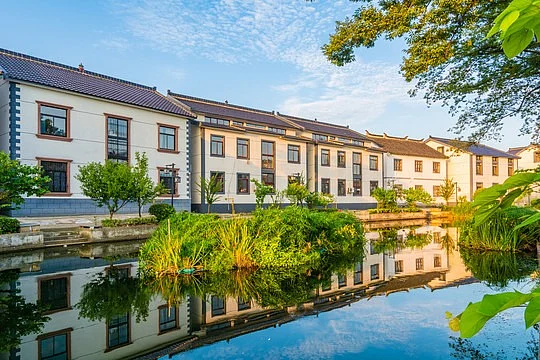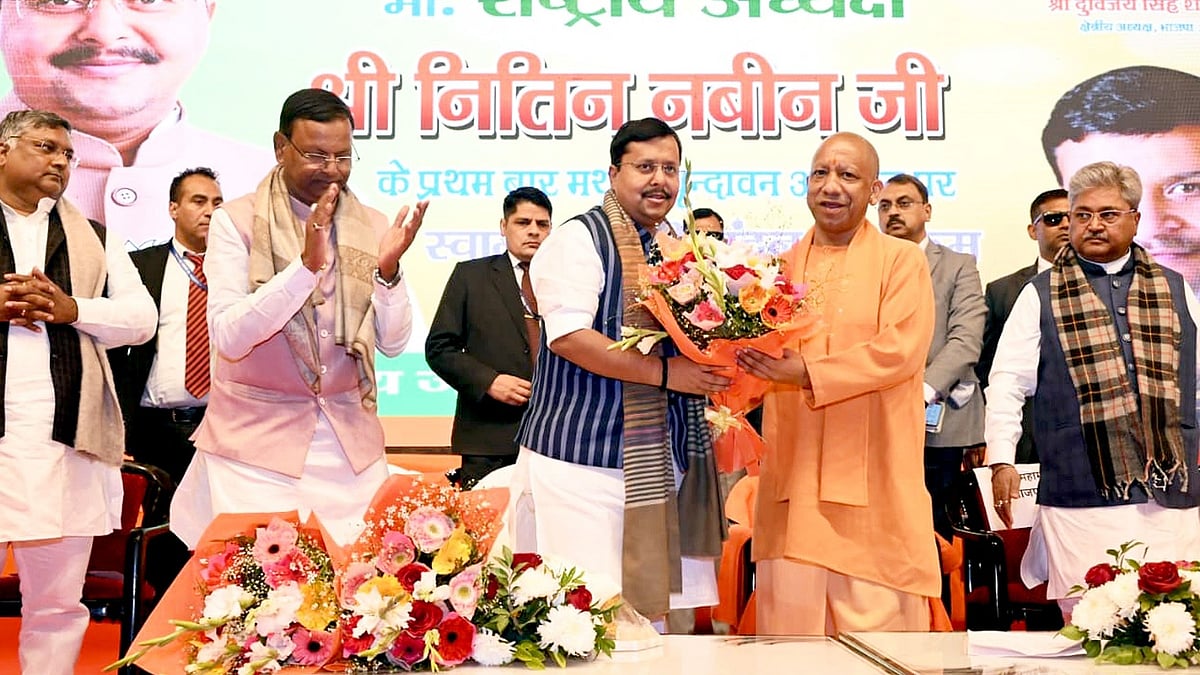Without the modernization of agriculture and rural areas, there will be no modernization of the whole country. For the majority of developing countries, rural revitalization is a must-answer question on the road to modernization. Last year, on my way to Solapur, a city located in the south-western region of the Indian state of Maharashtra, I saw the beautiful scenery of the Indian countryside, like, the upright sorghums, the reddest pomegranates, untasseled corn stalks, the low grape trellis, and others. As two populous and agricultural countries, China and India rural areas development are full of potential and hope.
The countryside has long been a place of longing to the Chinese people. The idyllic scenes of farming, crowing chickens and barking dogs have always evoked our fondness for homeland. Two decades ago, to meet the expectations of lucid waters and lush mountains for future generations, and to realize the people's wish for a better life, East China's Zhejiang province launched a meaningful and far-reaching program, namely “Green Rural Revival Program”, with ecological development at its core, which explored a successful path to achieve rural modernization.

In the past 20 years, Zhejiang's rural living conditions have been profoundly reshaped. The quality of rural living environment is leading in the country with over 61% of the forest cover. Meanwhile, the coverage rate of domestic sewage treatment is 100%, rural household waste basically achieves “zero growth” and “zero landfill”, and rural sanitary toilets are fully covered in the planned reserved villages.
Over the past 20 years, Zhejiang's integrated urban-rural development has been greatly promoted. Urban and rural infrastructures connectivity have further strengthened, the same minimum living standard has been achieved in urban and rural areas within municipal level, and the equalization of basic public services leads the country. Furthermore, rural residents have access to basic “30-minute public services circle” and “20-minute medical and health care services circle”.
Over the past 20 years, Zhejiang's rural industries have flourished. New industries continue to emerge, such as leisure agriculture, rural e-commerce, cultural creativity and others. At a result, income of rural residents has been growing at a faster pace than that of their urban peers, with income ratio between urban and rural residents reducing from 2.43 in 2003 to 1.90 in 2022. The per capita disposable income of rural residents increased from 5,431 yuan in 2003 to 37,565 yuan in 2022. The annual revenue of collective economy of more than 50% administrative villages has surpassed 500,000 yuan.

Qiu Liqin, a village representative, said, "I come from a village in Zhejiang province. 15 years ago, I had to carry a bucket full of dirty water every day to walk a long way to dump it. At that time, there was smelly polluted waterways, but no sewage pipe in my kitchen, and no garbage bin in the village. Now, thanks to the Green Rural Revival Program, putting forward by President Xi Jinping, the image of the countryside has been comprehensively lifted.”
Great causes require advanced ideas, and successful practices stem from clear perceptions. In 2003, Xi Jinping, the then-Party head of Zhejiang spent 118 days, running through 11 cities and investigating village by village. Obtaining first hand accounts, he made the strategic decision of launching the Green Rural Revival Program, which has transformed Zhejiang countryside with flying colours. The program has not only revitalized thousands of villages, benefited millions of villagers, but also incorporated beautiful ecosystem, clean economy with good life.
In the process of countryside revitalization, the ideology that lucid waters and lush mountains are invaluable assets is upheld firmly in Zhejiang, where it was initiated. Village renovation is integrated with ecological construction by creating ecological brands, exploring cultural landscapes, cultivating new industries, like modern agriculture, tourism or others. With all these efforts, farmers get more prosperous in a cleaner and more sanitary environment day by day.
With decades of hard work, China figured out that relying on the unique advantages of rural areas in full swing could ensure a sustainable rural modernization. As the Program proceeds, considering the natural conditions of different regions, the local development realities, financial affordability and farmers' willingness, we stick to the sound development routes by planning beforehand within capacity. At the same time, we respect the development patterns of the countryside itself, focus on features of rural areas, so that we can retain the original appearance of the countryside to the greatest extent.
Looking back on the achievement of the past two decades, the key is the persistence in one blueprint till the end. During the implementation of the Program, the governments of Zhejiang at all levels have been taking an easy-before-difficult approach with step-by-step actions, starting with the centralized treatment of rural garbage and village environment cleanness, which costs little but yields much, to safe drinking water, sanitary washrooms, hardening village roads, green and lighting villages. Furthermore, we will boast industrial cultivation, public service improvement and digital reform. Eventually, this sophisticated blueprint is not only fully but also smoothly executed.
In 2018, the Program was awarded Champions of the Earth (inspiration and action), the highest environmental award by the United Nations Environment Program (UNEP), with the award saying that this highly successful ecological restoration project demonstrates the transformative power of allowing environmental protection to go hand-in-hand with economic development. After visiting Zhejiang villages, Mr. Erik Solheim, UN Environment Executive Director and Under-Secretary-General of the United Nations, said that what I saw in Pujiang and Anji (two counties) in Zhejiang Province is what the future of China will look like, and even the future of the world.
The miracle of China's countryside has proved that as long as we have firm confidence in development, anchor our development goals and put together the creativity from the farmers, the vision of beautiful and harmonious development of the countryside will eventually come to fruition.
(The writer is Consul General of the Consulate General of the People’s Republic of China in Mumbai)









.jpg)
